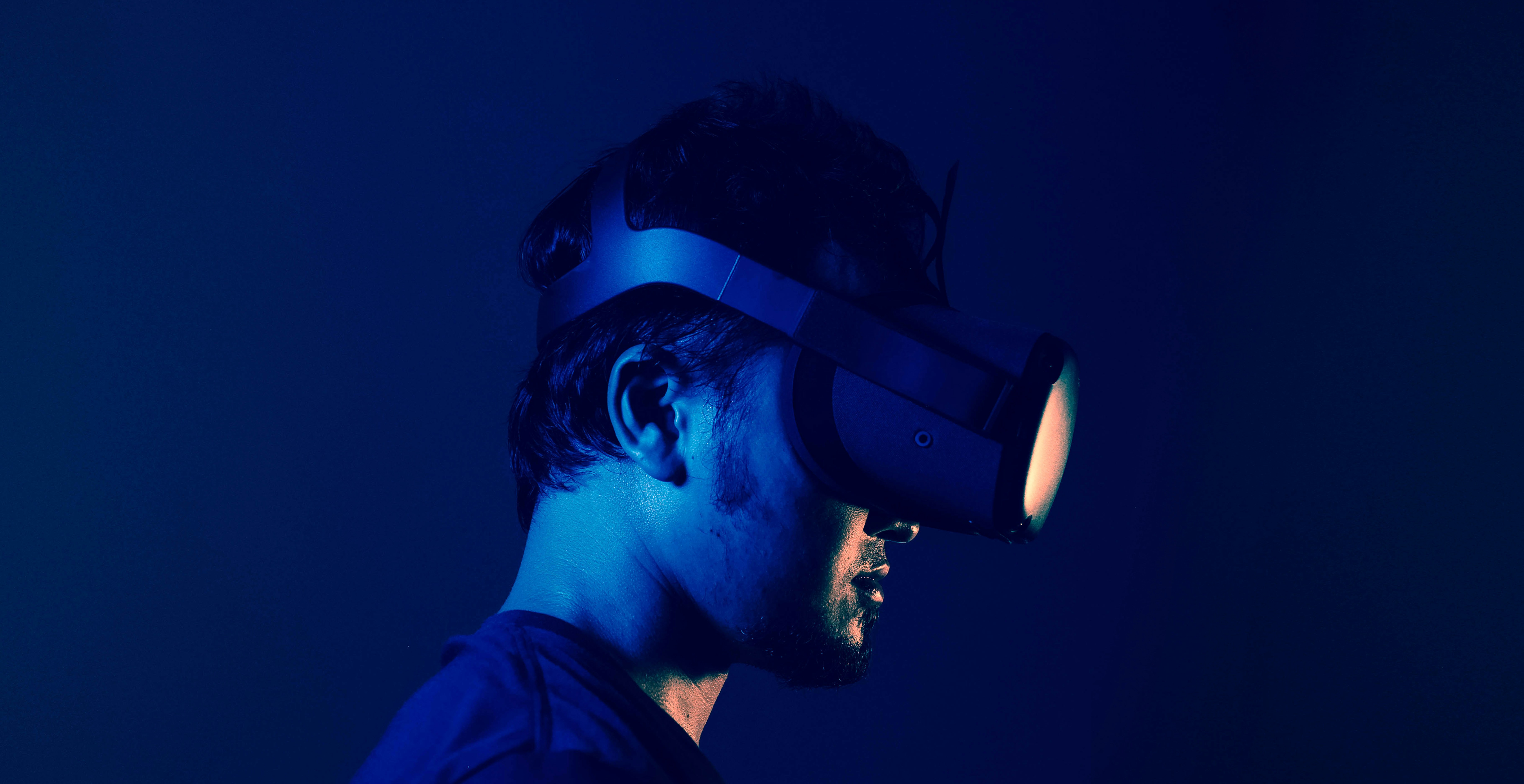
How to Present Medical Technology Solutions to Non-Technical Audiences: A Public Speaking Guide for Job Seekers
The medical technology (medtech) sector is advancing rapidly—introducing AI-powered diagnostics, wearable health monitors, robotic surgery, and remote patient care. But for these innovations to succeed, they must be understood, trusted, and adopted by a wide range of non-technical stakeholders.
That’s why UK employers are now looking for medtech candidates who can do more than design great products—they want professionals who can clearly explain complex solutions to clinicians, patients, regulators, investors, and internal teams.
This guide will help job seekers in the medical technology space master public speaking, with tips on presentation structure, slide design, storytelling techniques, and how to answer tough stakeholder questions with confidence and clarity.
Why Public Speaking Matters in Medical Technology Roles
Medtech professionals often need to communicate with:
Clinicians & NHS staff
Investors or business stakeholders
Regulatory bodies (e.g. MHRA)
Patients, carers, or the general public
Marketing, procurement & customer support teams
These audiences may not understand machine learning, IoT devices, FDA classifications, or firmware updates—but they do care about safety, usability, cost, and impact.
Whether you're in product development, clinical engineering, software, quality assurance or customer implementation—your ability to communicate effectively is a major advantage.
When You’ll Be Tested on This Skill
UK medtech job interviews may include:
A short presentation on a project or product
A simulated pitch to investors or procurement officers
A case study walk-through for a non-technical audience
An explainer task for a medical innovation panel
A roleplay presentation to NHS staff or hospital administrators
These tasks test your ability to translate tech into benefits, build trust, and demonstrate user focus—especially in health-adjacent roles.
Structuring Your Medtech Presentation: The “C.A.R.E.” Framework
Use this simple four-part structure to build a compelling, audience-focused presentation:
C – Challenge
Begin by explaining the health or clinical problem:
“NHS nurses were spending hours manually recording patients’ vital signs, increasing the risk of missed alerts and delayed interventions.”
Frame the problem in human or service terms—not tech specs.
A – Approach (Your Solution)
Describe your product or project in simple terms:
“We developed a wireless wearable that continuously monitors heart rate and oxygen levels, with alerts sent directly to nurses’ mobile devices.”
Explain what it does—not how it was coded or built.
R – Results That Matter
Share real-world or projected outcomes:
“Pilot studies showed a 30% drop in response time for critical patients and saved staff over 2,000 hours annually in documentation.”
Use measurable impact where possible—clinical, operational, or cost-related.
E – Empathy & Expansion
Show how it helps people—and how it can scale:
“Patients felt more reassured with 24/7 monitoring, and the system can be easily deployed across wards without infrastructure changes.”
Slide Design Tips for Medtech Presentations
When presenting in interviews or to stakeholders, use slides that support your message—not confuse it.
✅ Use Simple Diagrams
Device-to-dashboard visual flows
Data collection & alert workflows
Before/after process timelines
Outcomes & cost comparisons
Use icons for patients, clinicians, sensors, devices and data—not complex software architecture maps.
✅ Avoid Technical Overload
Don’t show circuit diagrams, raw sensor output or algorithm details unless specifically asked
Focus on visuals showing what it does, who it helps, and how it improves care
✅ Emphasise Benefits in Plain English
Rather than:
“Bluetooth LE protocols with integrated firmware updates”
Say:
“The device sends data securely in real time and updates automatically—no IT support needed.”
✅ Label Clearly and Consistently
Use clean, large fonts and clear titles:
“Result: 3-minute setup, 95% patient comfort rating, 24/7 clinical visibility”
Make each slide tell one story.
Storytelling in Medical Technology
Use the “Patient First” Narrative
Frame your story around the user experience, not the tech stack.
Challenge
“An elderly patient at risk of falls waited hours for assistance.”
Solution
“Our floor-sensor system alerted nurses immediately after a fall attempt.”
Result
“Response time dropped by 70% and no further falls were recorded in the trial.”
Use Analogies to Simplify Concepts
Analogies help explain unfamiliar ideas:
Remote monitoring = Home security for your health
AI diagnostics = A second opinion that never sleeps
Edge computing = A pocket-sized brain inside the device, so decisions happen instantly
Use 1–2 analogies to make key concepts stick—but don’t overdo it.
Bring in the Human Element
Medical technology isn’t abstract—it touches lives. So include:
Staff quotes or patient feedback
User journey visuals
Clinician pain points you solved
Example:
“Before our app, nurses carried 5 devices and handwritten charts. Now, they use one dashboard with fewer interruptions.”
Answering Non-Technical Questions with Confidence
Expect to be asked:
“Is this safe for patients?”
“Will it delay our workflows?”
“Is it compliant with NHS standards or CE marking?”
“Can patients trust this?”
“What if the Wi-Fi goes down?”
How to Respond Effectively
✅ Safety First
“The device has passed Class IIb testing, and we’ve completed usability and risk assessments under ISO 14971.”
✅ Operational Impact
“Setup takes under 3 minutes, and staff feedback shows it saves time, rather than adding burden.”
✅ Compliance Reassurance
“We’ve met MHRA requirements, GDPR regulations, and use encrypted cloud storage with audit logging.”
✅ Trust and Ethics
“We’ve worked closely with patients and clinicians during design and testing to ensure trust, comfort, and transparency.”
✅ Resilience
“The device can store data locally for up to 24 hours if offline and resyncs once reconnected.”
Practising for Medtech Interviews
✅ Rehearse With a Non-Medical Listener
Present your pitch to someone unfamiliar with your product. Ask:
“What parts confused you?”
“What did you take away from this?”
“What would make you trust this solution?”
✅ Time Yourself
Standard presentation slots are 5–10 minutes. Rehearse until you’re calm, clear and well-paced.
✅ Film Yourself
Check for:
Rushed explanations
Reading from slides
Jargon without explanation
Missed opportunities to show empathy or impact
What Employers Want to See
In UK medtech job interviews, employers are looking for candidates who demonstrate:
Clarity – Can you explain your solution simply?
Empathy – Can you connect with patients or end users?
Stakeholder awareness – Can you adapt your message to who’s listening?
Confidence – Can you speak with authority and calm under pressure?
Compliance understanding – Can you speak about risk, ethics, or regulation responsibly?
These traits are essential in roles involving product design, regulatory affairs, user research, implementation, or innovation strategy.
Real UK Interview Examples
🔹 MedTech Graduate Role
“Pitch a wearable health device to NHS procurement managers.”
Tip: Focus on ease of use, outcome tracking and reduced hospital admissions.
🔹 Clinical Implementation Specialist
“Explain how your product supports better patient outcomes to a nursing team.”
Tip: Avoid buzzwords—focus on workflow, alerts, and staff experience.
🔹 Medical AI Startup
“Present your machine learning algorithm to an investor who knows healthcare but not data science.”
Tip: Explain fairness, performance and compliance—skip model tuning and hyperparameters.
Common Mistakes to Avoid
❌ Diving into the Technology Too Soon
Always lead with the problem and benefit. Save the tech details for later or for technical stakeholders.
❌ Assuming Shared Knowledge
Not everyone knows what CE marking, HL7 integration, or SaMD means. Explain or avoid unless required.
❌ Cluttered Slides
Don’t cram your slides with tech specs or screenshots. Stick to one key idea per slide.
❌ Ignoring Compliance and Trust
If your solution involves personal data, medical risk, or clinical decision-making, these points must be addressed.
Final Presentation Tips
Know your audience – Are they clinicians, investors, patients, or managers?
Start strong – Set the scene and state your purpose early
Use visuals – Avoid text-heavy slides
Speak slowly – Especially when introducing technical terms
End with impact – Reinforce how your work helps people
Soft Skills You’ll Build Alongside
Public speaking in medtech strengthens:
Cross-disciplinary collaboration
Clinical empathy
Stakeholder trust-building
Strategic communication
User-focused thinking
These are the skills that accelerate careers and drive adoption of life-saving technology.
Conclusion: Speak Health Tech with Impact
Medical technology can change lives—but only if people understand it, trust it, and use it.
As a job seeker, your ability to present your medtech solution clearly and confidently is one of your most valuable assets. It will help you stand out in interviews, win stakeholder support, and contribute meaningfully to better healthcare.
Ready to Find Your Next Medtech Job?
Browse the latest UK medical technology jobs at www.medicaltechnologyjobs.co.uk, where we connect talent with innovative employers looking for brilliant communicators and passionate problem-solvers.
Innovate health. Present clearly. Make a difference.


